
A.P. Moller - Maersk has ordered eight large container vessels from China’s New Times Shipbuilding.All eight ships will have the same characteristics and make up a new series of 18,600 TEU vessels with delivery in 2029 and 2030.The ships will be equipped with dual-fuel engines able to operate on conventional bunker fuel or liquified gas.

CF Industries, Trafigura and TFG Marine have signed a memorandum of understanding (MoU) to facilitate the adoption of low-carbon ammonia as a marine fuel.Building on the successful collaboration between CF Industries and Trafigura in the shipment of low-carbon ammonia, the agreement establishes a framework for the parties to work together on advancing low-carbon ammonia as a marine fuel

Conrad Shipyard and Samsung Heavy Industries have agreed to a collaborative framework to jointly explore opportunities in the rapidly expanding U.S. LNG bunkering market.Under the agreement, Conrad and SHI will work together to evaluate and pursue technical, commercial, and market-based initiatives that support the design, construction, and deployment of LNG bunkering vessels tailored for U.S.
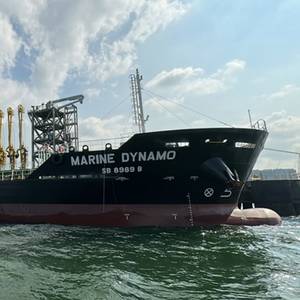
Singapore-registered tanker Marine Dynamo and a Malta-registered bulk carrier Flag Gangos have collided south of Tanah Merah in Malaysia.Both vessels are stable, following the incident that occurred in the early hours of September 1, the Maritime and Port Authority of Singapore (MPA) informed.Light oil sheens have been sighted in the vicinity of Marine Dynamo.
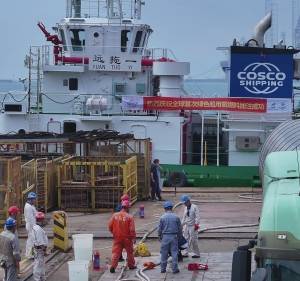
Sinobunker, one of COSCO Shipping’s subsidiaries, has completed the world’s first green ammonia bunkering operation at COSCO Shipping Heavy Industry’s Dalian terminal.The ammonia was sourced from the world’s largest green hydrogen and ammonia plant established by Envision in Chifeng and powered entirely by the world’s largest independent renewable energy system.

Ordering of alternative-fueled vessels is continuing to grow in 2025, despite a slowdown in the overall newbuild market. According to data from DNV’s Alternative Fuels Insight (AFI) platform, new orders for alternative-fueled vessels reached 19.8 million gross tonnes (GT) in the first six months of 2025, exceeding the 2024 figure by 78%.

In a milestone for the green fuel economy, Fortescue, in collaboration with Trovio and the Green Hydrogen Organisation (GH2), has completed the issuance of the world’s first digital fuel certificate for an ammonia-to-ship transfer. The transaction involved the Fortescue Green Pioneer, the first ocean-going dual-fueled ammonia powered vessel
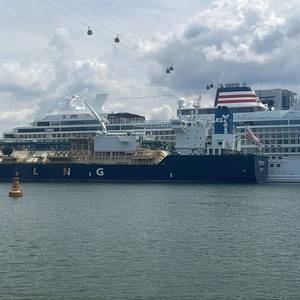
ASUKA III, said to be the largest Japanese-flagged cruise ship, has completed its first marine LNG bunkering by FueLNG Private at Singapore Cruise Centre.The bunkering milestone also marks Shell LNG's first supply to an LNG-powered cruise ship in the region, according to Singapore Cruise Centre.Asuka III is owned by NYK Cruises, a company of the Japanese shipping group NYK.
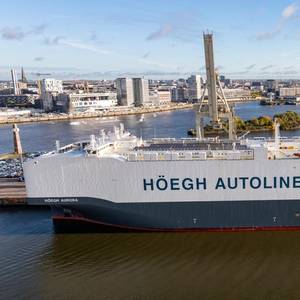
Confusion over new fuels will not be helped by the fact that each one has a good and bad version. The science on grey ammonia, grey methanol, and palm oil biofuel show that these are probably worse for the planet, if adopted, than unfettered continuation of fossil fuel consumption.
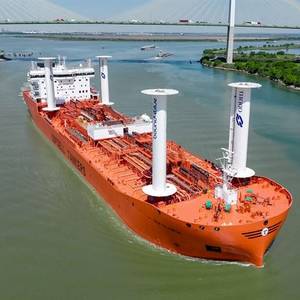
Odfjell’s chemical tanker Bow Olympus is currently crossing the Atlantic powered by a combination of wind-assisted propulsion and a certified sustainable 100% biofuel, marking the company’s first near carbon-neutral transatlantic voyage.Real-time data from the voyage confirms that the dual propulsion approach is both technically feasible and impactful
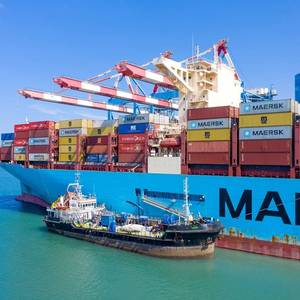
The maritime industry has worked with a single fuel source for over a century and with the rush to meet emission standards in both domestic and foreign markets, adapting to the current list of alternative fuels is going to present significant problems. Each market has its issues whether bluewater, brownwater, coastal, foreign or domestic.
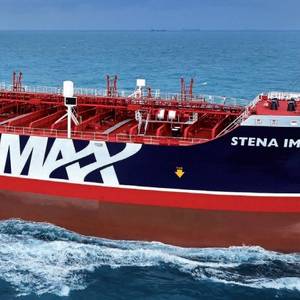
Stena Bulk, the owner of the Stena Immaculate oil tanker, said it is working closely with the manager of the vessel Crowley and U.K. agencies following the last week’s allision with incident the container ship Solong.Salvage experts from SMIT Salvage are continuing with their detailed onboard assessments of Stena Immaculate.